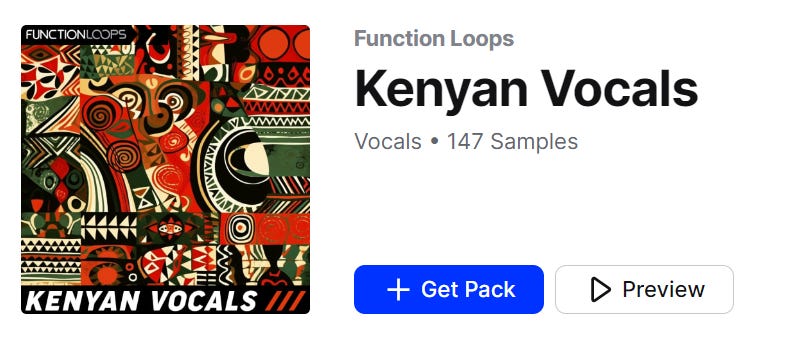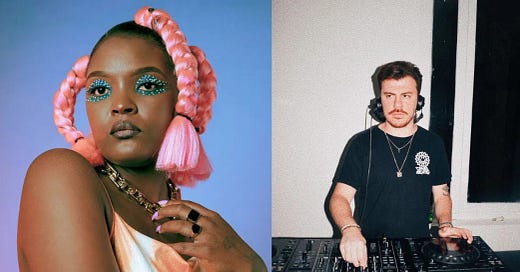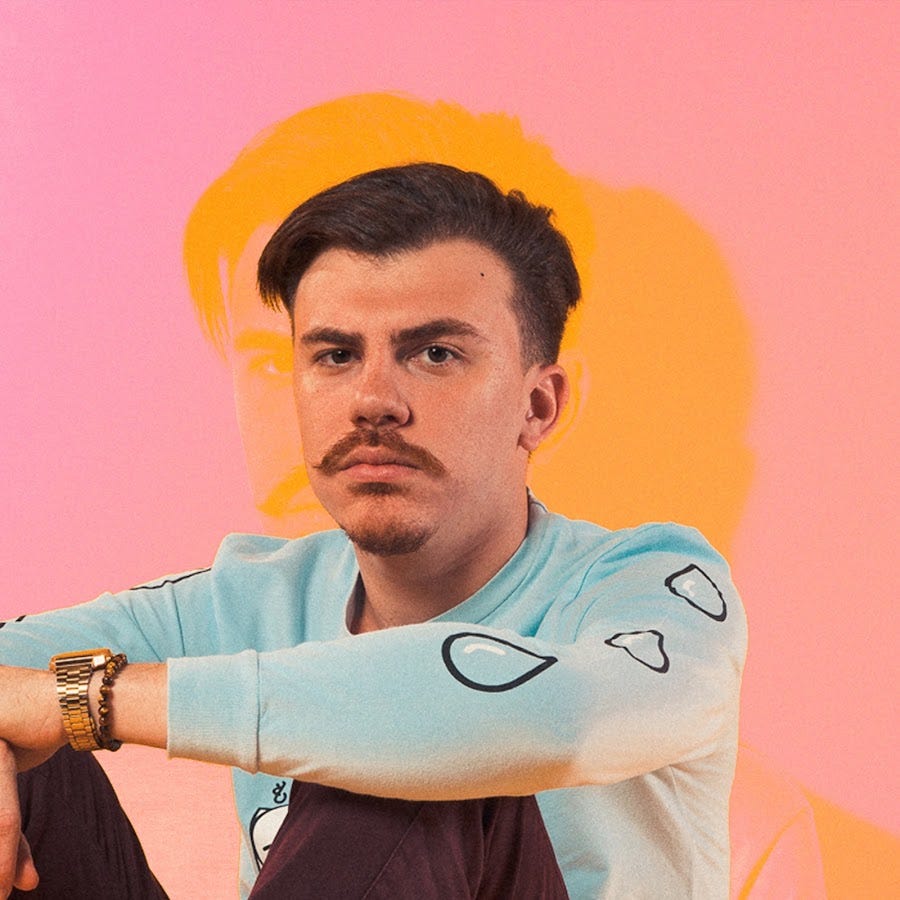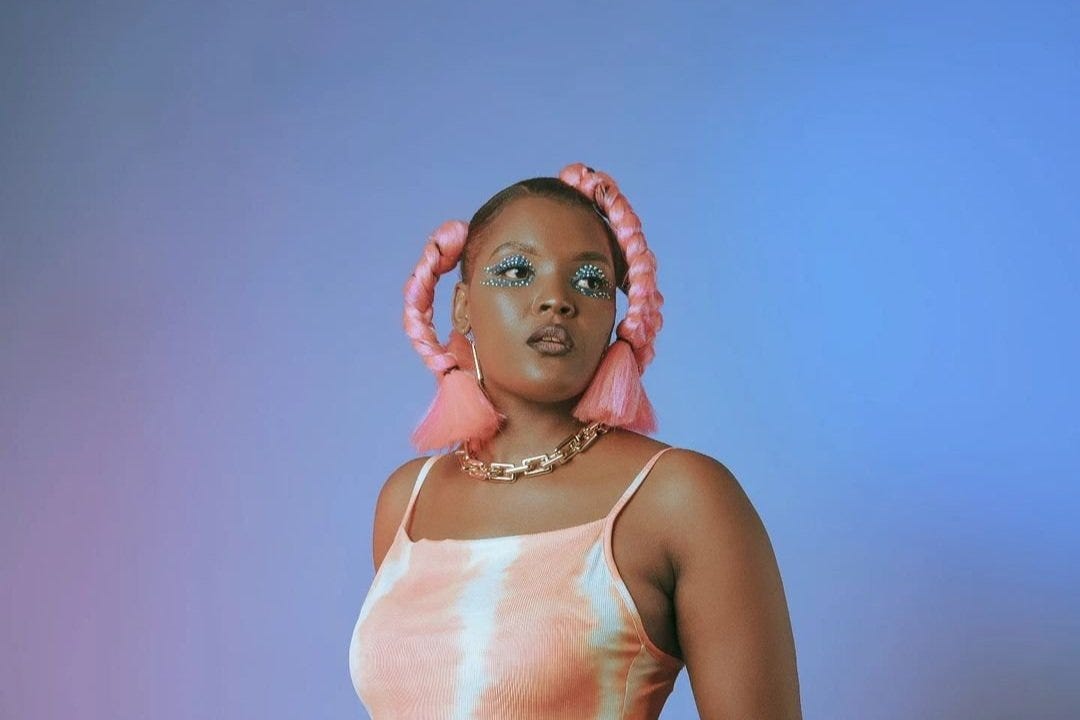So, You've Gone Viral. Now What? A Conversation with Zerb & Sofiya Nzau
Zerb and Sofiya Nzau made a song without ever meeting in person. Then it went viral. How have the two navigated their new-found fame?
A few months ago, the electronic producer Zerb was looking to step outside of his comfort zone. After cooking up a beat in his studio, he found some vocals online by the Kenyan artist Sofiya Nzau that he really liked. There was one issue. Zerb had no idea what Nzau was singing. After briefly connecting over Instagram, he found out that Nzau was singing the beautiful melody in Kikuyu, a local Kenyan language.
Now, that he was sure the lyrics fit the vibe of his song, he finished it up and released it. Within a few weeks, it had gone viral on TikTok and topped multiple charts on Spotify. I recently sat down with the unlikely duo to talk about what it’s like making music across oceans, how virality can change your life, and what to do when everybody’s eyes are suddenly on you.
A Conversation with Zerb & Sofiya Nzau
“Mwaki” is an international smash, going viral in scores of countries. What is it like to have a song you are working on start to blow up all over the place, especially outside of the countries you are well-known in?
Zerb: It's been crazy. I'm receiving lots of messages from people all over the world. I'm so grateful for all the love from different countries. This song showed that music is universal.
Sofiya Nzau: It's such a warm feeling. It's every artist’s dream to experience something like this.
Both of you have been making music for years. Does something like this make you feel like an overnight success or do you remember all the work you’ve put in?
Zerb: It did not feel like it was overnight. I remember when the song hit number one of Spotify’s Global Viral Song chart I started crying. I felt relief. At 25, I have now been working on music for over 11 years, and it finally happened. I’d put out 78 songs before this. It’s been a lot of work.
Nzau: I agree that it was not an overnight thing. This is the song that you wait for as an artist. It’s just been an adventure to see how big this song can go.
The interesting thing about this song is that people seem to be obsessed with every piece of it. There are tons of videos online of people reacting to the beat drop. There are also people all over the place debating what the lyrics mean. I think this dual reaction is super cool because it highlights how important each of your contributions were to the track.
I want to hear a bit about those contributions. Zerb, can you first tell us about how you crafted the beat? Then Sofiya can you talk about what’s going on in those lyrics?
Zerb: On the beat side, this was the last song I was working on for my EP SURRENDER. I wanted to make something different and something fresh. So, I started building the synth sounds from scratch. Once I had the instrumental, I knew I needed a unique vocal. While I was searching online, I came across the clip of Sofiya singing what became “Mwaki”. I was just struck by how beautiful her voice was. I knew that was the vocal. I then put it to the beat and it fit perfectly.
So, you didn’t have to change the key to make it work with her vocal?
Zerb: No. That was the weird part. It was the exact same key.
Tell me a little bit about that vocal, Sofiya. I know that there has been discussion swirling around the lyrics.
Nzau: I was just looking to write something that people could relate to. I don't know if it's the same in your culture, but in Kenya there are so many stories of people who have been denied love by their parents. So, I wanted to capture that. It wasn’t from my personal experience, but it was from people’s experiences that I knew.
Those lyrics are sung in Kikuyu, a language native to Kenya. Do you think there is something specific about singing in Kikuyu that made the song so powerful? Would another language have worked?
Nzau: I don't know if it would have worked if I were singing in another language. I think people really liked how Zerb and I came together in such a beautiful way. I think that made the difference with this song.
Correct me if I’m wrong, Zerb, but you don’t speak Kiyuku? You were just moved by the melody?
Zerb: Yeah. But my whole EP is about love, so I reached out to Sofiya on Instagram and asked her to tell me what the lyrics meant. Like I said before, it’s crazy because those lyrics were a perfect match for the rest of the EP. It was very fateful.
The international success of “Mwaki” is not the only thing international about it. It’s also international because it was created across an ocean. Zerb, you live in Brazil. Sofiya, you live in Kenya. I want to understand how this song came together across the globe without either of you interacting with one another in person. Sofiya, can we start with you and how this vocal first emerged?
Nzau: I created a vocal pack and sold it to Function Loops. They placed the pack on Splice where Zerb found it.

For those reading along that don’t know, Splice is a music service with thousands of samples and plug-ins that producers pay a monthly fee to get access to. What’s nice is that all of the samples are royalty free, so you can use anything you find however you’d like without being concerned about legal recourse. Zerb, given how much stuff is on Splice, I’m curious how you found the clip of Sofiya.
Zerb: I was probably on there for an hour just looking for something unique. It can be kind of exhausting. But when I heard the clip of Sofiya, I was in love. It was just sort of luck that I found it.
Sofiya, I know you’ve made sample packs before. As I noted, people can use them without your permission. Did you know Zerb had made this song before it had started blowing up? Or did you not know until after the fact?
Nzau: I knew that Zerb had made the song because he had reached out to me about the lyrics on Instagram. But I didn’t know it was going viral until my friends starting sending me TikTok’s that were using the song.
As the song blew up, a brief controversy emerged because it was only credited to Zerb. This is actually common practice. Usually when you are uploading samples to a beat store like Splice, you are doing it so that people can pay up front and not have to compensate you afterwards. Since then, Sofiya has been listed as a featured singer and songwriter on the track, so you both can benefit from it financially. How did that arrangement come about?
Keep reading with a 7-day free trial
Subscribe to Can't Get Much Higher to keep reading this post and get 7 days of free access to the full post archives.






